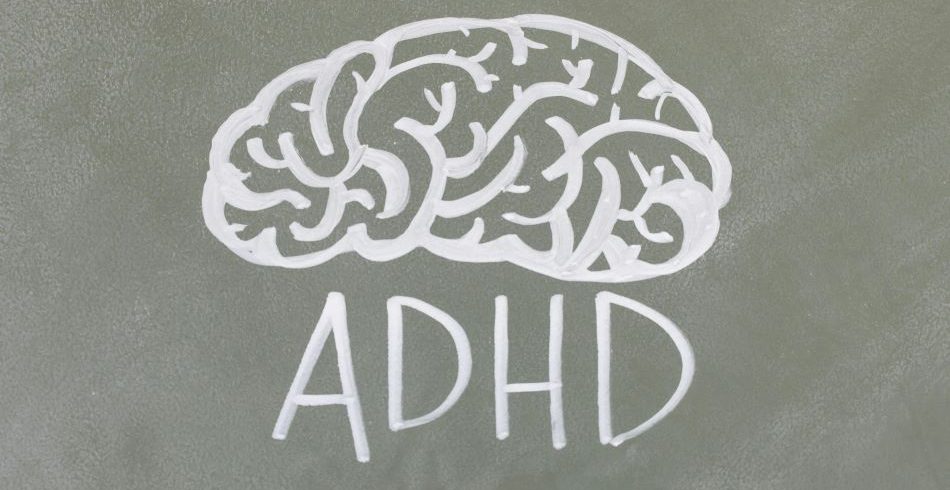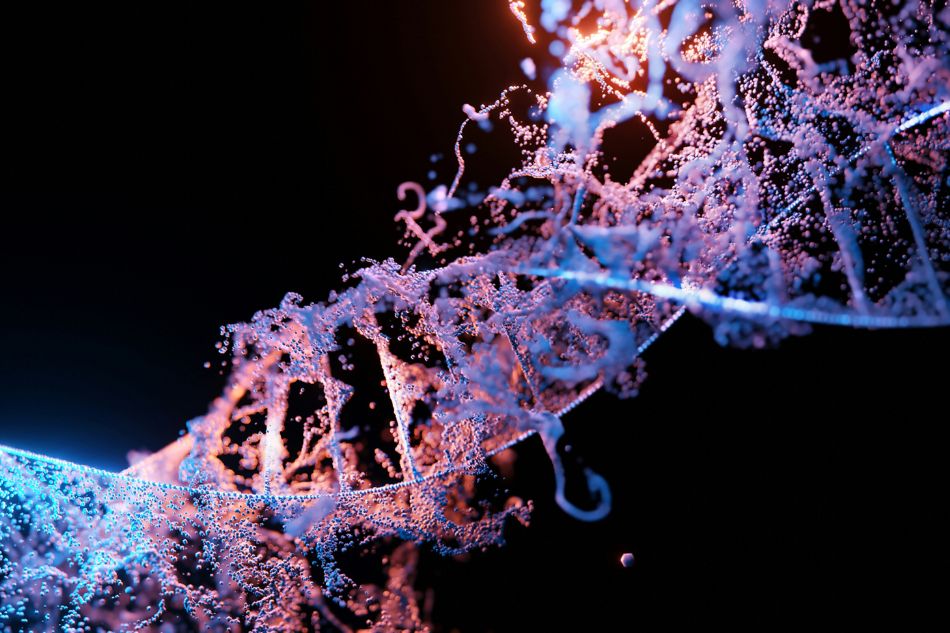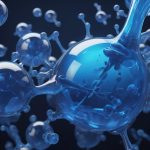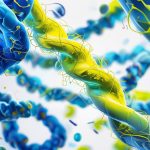Nootropics for ADHD: Can Natural & Synthetic “Brain Boosters” Help You Focus?

Is your mind constantly buzzing with thoughts, making it hard to concentrate on the task at hand? Do you find yourself struggling to prioritize, organize, and follow through on commitments? If you’re an adult, these challenges may be signs of Attention Deficit Hyperactivity Disorder (ADHD).
While often associated with childhood, ADHD affects an estimated 4.4% of adults in the United States, with a higher prevalence in male vs females. It’s a neurodevelopmental disorder that can persist into adulthood or even emerge later in life. The symptoms can be frustrating and disruptive, impacting careers, relationships, and overall well-being.
Traditional treatments like stimulant medications and behavioral therapy are often effective, but many adults seek alternative or complementary options with fewer side effects. This is where nootropics for ADHD – also known as “smart drugs” or “cognitive enhancers” – enter the picture. But do these brain-boosting substances really move the needle when dealing with this condition? Let’s explore the science behind natural and synthetic nootropics to uncover their potential benefits and risks for adults with ADHD.
Traditional ADHD Treatments & Their Limitations
When it comes to managing ADHD in adults, traditional treatments often serve as the first line of defense. These treatments generally fall into two categories: medication and behavioral therapy. Let’s take a closer look at each:
Stimulant Medications
Stimulants, such as methylphenidate (Ritalin, Concerta) and amphetamines (Adderall, Vyvanse), are the most commonly prescribed medications for ADHD.
Mechanism of Action:
Stimulants work by increasing the levels of dopamine and norepinephrine in the brain. These neurotransmitters play crucial roles in attention, focus, motivation, and impulse control. By boosting their availability, stimulants help to “normalize” brain activity in individuals with ADHD, leading to improved focus and reduced impulsivity.
Effectiveness:
Numerous studies have demonstrated the effectiveness of stimulants in managing ADHD symptoms. For example, a meta-analysis published in The Lancet found that stimulants are effective in reducing core ADHD symptoms in both children and adults.
Side Effects:
While stimulants can be highly effective, they are not without their drawbacks. Common side effects include:
- Insomnia: Difficulty falling asleep or staying asleep.
- Appetite suppression: Loss of appetite and potential weight loss.
- Anxiety and jitteriness: Feeling nervous or restless.
- Increased heart rate and blood pressure: Potential cardiovascular risks, especially for those with pre-existing conditions.
- Headaches and stomachaches: These are usually mild and temporary.
- Rebound effects: A temporary worsening of ADHD symptoms as the medication wears off.
- Potential for dependence or misuse: While rare when used as prescribed, stimulants do have the potential for misuse and dependence.
Non-Stimulant Medications
For individuals who cannot tolerate stimulant medications or have coexisting conditions like anxiety, non-stimulant medications may be an option. Examples include atomoxetine (Strattera) and guanfacine (Intuniv).
Mechanism of Action:
Non-stimulants work differently than stimulants. Atomoxetine, for instance, primarily targets norepinephrine, while guanfacine works on both norepinephrine and alpha-2 adrenergic receptors. These mechanisms are thought to improve attention and reduce impulsivity without the stimulating effects of dopamine.
Effectiveness:
While not as widely studied as stimulants, non-stimulant medications have shown efficacy in managing ADHD symptoms. A meta-analysis published in Frontiers in Psychiatry found that atomoxetine was moderately effective in reducing ADHD symptoms in children and adolescents.
Side Effects:
Non-stimulant medications generally have fewer side effects than stimulants. However, they can still cause:
- Stomach Aches and nausea: These are the most common side effects.
- Drowsiness and fatigue: This can be problematic for some individuals.
- Mood changes: Irritability, anxiety, or depression may occur in some cases.
- Decreased appetite: This may lead to weight loss.
Behavioral Therapy
Behavioral therapy, such as cognitive-behavioral therapy (CBT), focuses on teaching individuals with ADHD skills to manage their symptoms and improve their daily functioning. This can include strategies for time management, organization, problem-solving, and emotional regulation.
Effectiveness:
Behavioral therapy can be highly effective, especially when combined with medication. It equips individuals with tools they can use throughout their lives to cope with the challenges of ADHD.
Limitations:
Behavioral therapy requires time, effort, and commitment. It may not be accessible to everyone, and some individuals may prefer or need additional support from medication.
The Quest for Alternatives for ADHD management
While traditional treatments can be effective, they’re not a one-size-fits-all solution. Side effects, personal preferences, and individual responses to medication all play a role in the decision-making process. Many adults with ADHD seek complementary or alternative approaches to manage their symptoms, which leads us to the intriguing world of nootropics.
What Are Nootropics? A Deeper Dive into the “Brain Boosters” Phenomenon
Nootropics have become a buzzword in the wellness world, but what exactly are they? In essence, nootropics are substances that are believed to enhance cognitive function. This encompasses a broad range of mental abilities, including memory, focus, attention, learning capacity, creativity, motivation, and even mood.
The term “nootropic” itself is derived from the Greek words “nous” (mind) and “trepein” (to bend or turn). So, you can think of nootropics as substances that have the potential to “bend” or “shape” your mind, improving its performance in various ways. The term “nootropics” was first used in 1972 by a Romanian psychologist and chemist, Dr. Corneliu E. Giurgea.
Nootropics are not a new invention. In fact, humans have been using natural substances to boost brainpower for centuries. Think of the traditional use of ginkgo biloba for memory enhancement or caffeine for a quick energy and focus boost.
However, in recent years, there’s been an explosion of interest in both natural and synthetic nootropics, driven by our ever-increasing desire to optimize ourselves and perform at our best.
How Do Nootropics Work? Unlocking the Brain’s Potential
Nootropics work in a variety of ways, tapping into the complex machinery of the brain to enhance its function. Some of the key mechanisms include:
- Boosting Blood Flow and Oxygen to the Brain: Just like a car needs fuel to run, your brain needs a constant supply of oxygen and nutrients to function optimally. Nootropics like ginkgo biloba and vinpocetine are believed to improve blood circulation in the brain, ensuring that your neurons have the resources they need to fire on all cylinders.
- Modulating Neurotransmitters: Neurotransmitters are the brain’s chemical messengers, playing a crucial role in everything from mood regulation to memory formation. Nootropics can influence the levels and activity of key neurotransmitters like dopamine (motivation, pleasure), acetylcholine (learning, memory), and serotonin (mood, well-being), leading to improved cognitive function and emotional balance.
- Protecting Brain Cells: Our brains are constantly under attack from oxidative stress and free radicals, which can damage cells and contribute to cognitive decline. Many nootropics, particularly those derived from plants, possess antioxidant properties that can neutralize these harmful molecules and protect brain cells from damage.
- Enhancing Neuroplasticity: This refers to the brain’s remarkable ability to change and adapt throughout life. Neuroplasticity is essential for learning new skills, forming memories, and recovering from brain injuries. Nootropics like piracetam and Lion’s mane mushroom are believed to promote neuroplasticity, enhancing the brain’s ability to rewire and strengthen connections between neurons.
The Nootropic Boom: A Multi-Billion Dollar Industry
The nootropics market is on fire. In 2023, it was estimated to be worth over $4 billion globally, and it’s projected to continue growing at a rapid pace. What’s fueling this boom? Several factors are at play:
- The “Biohacking” Movement: Biohackers are self-experimenters who are passionate about optimizing their bodies and minds. Nootropics are a key tool in their arsenal, allowing them to push the boundaries of human potential.
- The Demands of Modern Life: Our fast-paced, information-saturated world puts immense pressure on our cognitive abilities. Many people turn to nootropics to gain an edge, whether it’s to focus better at work, improve their memory for exams, or simply keep up with the demands of daily life.
- The Pursuit of Self-Improvement: We’re living in an era of self-optimization. People are investing in their health and well-being like never before, and nootropics offer a tempting way to upgrade their brains and unlock their full cognitive potential.
While the excitement surrounding nootropics is understandable, it’s important to approach them through informed, objective lenses. Not all nootropics are created equal, and the scientific evidence supporting their claims can vary widely.
As we delve deeper into this guide, we’ll examine specific nootropics for ADHD, exploring the research behind their potential benefits and risks, so you can make informed decisions about whether they’re right for you.
Natural Nootropics for ADHD: Nature’s Cognitive Enhancers
Natural nootropics offer a potentially gentler, less invasive approach to managing ADHD symptoms compared to prescription medications. Let’s explore some of the most promising options:
- Omega-3 Fatty Acids: These essential fats are crucial for brain structure and function. Studies have shown that individuals with ADHD often have lower levels of omega-3s in their blood.
- Scientific evidence: A meta-analysis of randomized controlled trials found that omega-3 supplementation may have a small but positive impact on ADHD symptoms, particularly lack of attention.
- Mechanism of action: Omega-3s help to build and maintain cell membranes in the brain, which are essential for communication between brain cells. They also have anti-inflammatory properties, which may be beneficial for ADHD.
- Dosage and safety: A typical dose for ADHD is 600-1000 mg of EPA (eicosapentaenoic acid) and DHA (docosahexaenoic acid) per day. Omega-3s are generally considered safe, but high doses can interact with blood thinners.
- Food sources: Fatty fish (salmon, tuna, mackerel), flaxseeds, chia seeds, walnuts.
- L-Theanine: This amino acid found in green tea has a calming effect on the mind without causing drowsiness. When combined with a small amount of caffeine, it can create a unique state of “relaxed alertness,” enhancing focus and attention.
- Scientific evidence: Studies suggest that L-theanine can improve attention, reduce anxiety, and enhance cognitive function in both healthy individuals and those with ADHD.
- Mechanism of action: L-theanine increases alpha brain waves, which are associated with a relaxed but alert state. It also modulates neurotransmitters like dopamine and serotonin, which are involved in mood and attention.
- Dosage and safety: A typical dose is 100-200 mg, often taken with 50-100 mg of caffeine. L-theanine is generally considered safe with few reported side effects.
- Food sources: Green tea, some mushrooms.
- Magnesium: This essential mineral is involved in hundreds of bodily functions, including nerve transmission and muscle function. Magnesium deficiency has been linked to various health problems, including ADHD.
- Scientific evidence: Some studies suggest that magnesium supplementation may improve attention and reduce hyperactivity in children with ADHD. More research is needed in adults, but the results are promising.
- Mechanism of action: Magnesium plays a role in regulating neurotransmitters like dopamine and GABA, which are involved in attention and impulse control.
- Dosage and safety: The recommended daily allowance (RDA) for magnesium varies depending on age and sex. Consult with your doctor to determine the appropriate dosage for you. Magnesium is generally safe, but high doses can cause diarrhea.
- Food sources: Dark leafy greens, nuts, seeds, legumes, whole grains, dark chocolate, avocados.
- Ginkgo Biloba: This ancient herb has been used for centuries to enhance memory and cognitive function. While research on its effects on ADHD is limited, some studies suggest it may modestly improve attention and mental clarity.
- Scientific evidence: A few small studies have shown that ginkgo biloba may improve attention and memory in adults with ADHD, but more research is needed.
- Mechanism of action: Ginkgo is thought to increase blood flow to the brain and protect brain cells from oxidative damage. It may also modulate neurotransmitters.
- Dosage and safety: A typical dose is 120-240 mg per day, standardized to 24% flavone glycosides and 6% terpene lactones. Ginkgo biloba is generally safe, but it can interact with certain medications, so talk to your doctor before taking it.
- Food sources: Ginkgo biloba is not typically found in food sources.
- Rhodiola Rosea: This adaptogenic herb has been used traditionally to combat fatigue and improve mental performance under stress. It may be helpful for adults with ADHD who experience fatigue or difficulty coping with stress, which are common challenges associated with the condition.
- Scientific evidence: Several studies suggest that Rhodiola rosea may improve cognitive function, reduce fatigue, and enhance mood in both healthy individuals and those with stress-related conditions. While more research is needed on its specific effects on ADHD, the results are promising.
- Mechanism of action: Rhodiola is thought to work by modulating the stress response system. It helps to regulate cortisol, a stress hormone that can impair cognitive function when levels are chronically elevated. Rhodiola may also increase the levels of neurotransmitters like dopamine and serotonin, which are involved in mood regulation and motivation.
- Dosage and safety: A typical dose of Rhodiola rosea extract is 200-600 mg per day. It’s generally considered safe for most adults when taken at recommended dosages. However, some potential side effects include dizziness, dry mouth, and insomnia. It’s important to consult with your doctor before taking Rhodiola, especially if you are pregnant, breastfeeding, or have any underlying medical conditions.
- Food sources: Rhodiola rosea is not typically found in food sources.
- B Vitamins: B vitamins are a group of essential nutrients that play a vital role in brain health and energy production. Deficiencies in B vitamins, particularly B6, B9 (folate), and B12, have been linked to various neurological and psychological disorders, including ADHD.
- Scientific evidence: Research on the effects of B vitamins on ADHD is mixed. Some studies suggest that supplementation with B vitamins may improve attention, impulsivity, and overall cognitive function in children and adults with ADHD. However, other studies have not found significant benefits. More research is needed to clarify the role of B vitamins in ADHD treatment.
- Mechanism of action: B vitamins are involved in numerous biochemical reactions in the brain, including the synthesis of neurotransmitters like dopamine and serotonin. They also play a role in methylation, a process that affects gene expression and brain function.
- Dosage and safety: The recommended daily intake for B vitamins varies depending on the specific vitamin and individual factors like age and sex. It’s best to consult with your doctor to determine the appropriate dosage for you. B vitamins are water-soluble, so excess amounts are generally excreted in the urine.
- Food sources: Whole grains, leafy green vegetables, legumes, meat, fish, eggs, dairy products.
Choosing the right Nootropic for ADHD: Your Personalized Roadmap
With so many nootropics available, it can be overwhelming to decide which one is right for you. It’s essential to consult with your doctor or a qualified healthcare professional before starting any new supplement or medication.
They can help you assess your individual needs, medical history, and current medications to create a personalized plan that’s safe and effective. Here are some key factors to consider when choosing a nootropic:
- Your Specific Symptoms: Different nootropics may target different aspects of cognitive function. Choose one that addresses your primary concerns, whether it’s focus, memory, energy, or mood.
- Your Age and Health Status: Some nootropics may not be suitable for certain age groups or individuals with certain health conditions. Your doctor can help you identify any potential risks or interactions.
- Your Lifestyle and Preferences: Consider your dietary habits, exercise routine, and stress levels. Certain nootropics may complement your lifestyle better than others.
- Your Budget: Nootropics can vary in price, so factor in your budget when making a decision.
Remember, nootropics are not a magic bullet. They’re not intended to replace traditional treatments or cure ADHD. However, when used responsibly and in conjunction with a healthy lifestyle, they may offer valuable support in managing symptoms and improving overall well-being.
A Holistic Approach: Combining Nootropics with Lifestyle
While nootropics hold promise for enhancing cognitive function, it’s important to remember that they work best as part of a holistic approach to health and well-being. Lifestyle factors play a crucial role in managing ADHD symptoms and can significantly impact the effectiveness of any supplement or medication.
Diet: Fueling Your Brain for Optimal Performance
The food you eat isn’t just fuel for your body – it’s also fuel for your brain. A balanced and nutritious diet can provide the essential building blocks for neurotransmitter production, enhance blood flow, and protect brain cells from damage. For individuals with ADHD, a healthy diet is particularly important as it can help to stabilize mood, improve focus, and reduce impulsivity.
Here are some dietary recommendations specifically tailored for adults with ADHD:
- Focus on whole foods: Fill your plate with plenty of fruits, vegetables, whole grains, and lean protein sources. These foods provide a steady supply of energy, vitamins, minerals, and antioxidants that are essential for brain health.
- Limit processed foods and refined sugars: Processed foods and sugary drinks can cause blood sugar spikes and crashes, leading to energy fluctuations, mood swings, and difficulty concentrating.
- Choose healthy fats: Omega-3 fatty acids, found in fatty fish, walnuts, and flaxseeds, are crucial for brain health and may help reduce ADHD symptoms.
- Stay hydrated: Dehydration can impair cognitive function, so make sure to drink plenty of water throughout the day.
- Consider the Mediterranean diet: This eating pattern, rich in fruits, vegetables, whole grains, olive oil, and fish, has been linked to numerous health benefits, including improved cognitive function and a reduced risk of depression and anxiety.
Exercise: Move Your Body, Sharpen Your Mind
Regular exercise isn’t just good for your body – it’s a powerful tool for improving brain health as well. Exercise increases blood flow to the brain, delivering oxygen and nutrients that support cognitive function. It also triggers the release of endorphins, natural mood boosters that can help to reduce stress and anxiety.
Aim for at least 30 minutes of moderate-intensity exercise most days of the week. Activities like brisk walking, jogging, cycling, swimming, or dancing are all great options.
Sleep and Stress Management: Rest and Recharge Your Brain
Sleep deprivation and chronic stress are notorious for wreaking havoc on cognitive function. They can exacerbate ADHD symptoms like inattention, impulsivity, and emotional dysregulation. Prioritizing good sleep hygiene and stress management is essential for optimal brain health.
Here are some tips for improving sleep and managing stress:
- Establish a consistent sleep schedule: Go to bed and wake up at the same time each day, even on weekends.
- Create a relaxing bedtime routine: Avoid screens in the hour before bed, take a warm bath, read a book, or listen to calming music.
- Make sure your sleep environment is comfortable and dark: Invest in a good mattress and blackout curtains if needed.
- Practice relaxation techniques: Meditation, deep breathing exercises, yoga, or tai chi can help to reduce stress and improve sleep quality.
- Seek professional help if needed: If you’re struggling with chronic insomnia or anxiety, talk to your doctor. There may be underlying medical conditions or mental health issues that need to be addressed.
Other Lifestyle Factors: Nurturing Your Brain’s Ecosystem
In addition to diet, exercise, and sleep, other lifestyle factors can also play a role in managing ADHD and optimizing brain health:
- Mindfulness Meditation: Mindfulness involves focusing on the present moment without judgment. It can help to improve attention, reduce impulsivity, and enhance emotional regulation.
- Spending Time in Nature: Research suggests that spending time in nature can reduce stress, improve mood, and boost creativity.
- Social Connection: Strong social connections are essential for mental well-being and can help to reduce the risk of depression and anxiety.
Conclusion
Navigating the world of nootropics for the first time can feel like venturing into uncharted territory. But with the right knowledge and guidance, you can make informed decisions that empower you to take charge of your ADHD and optimize your brain health.
Whether you choose to explore natural nootropics, consider prescription options, or focus on lifestyle changes, remember that a holistic approach is key. The most effective strategy for managing ADHD is one that addresses all aspects of your well-being – body, mind, and spirit.



